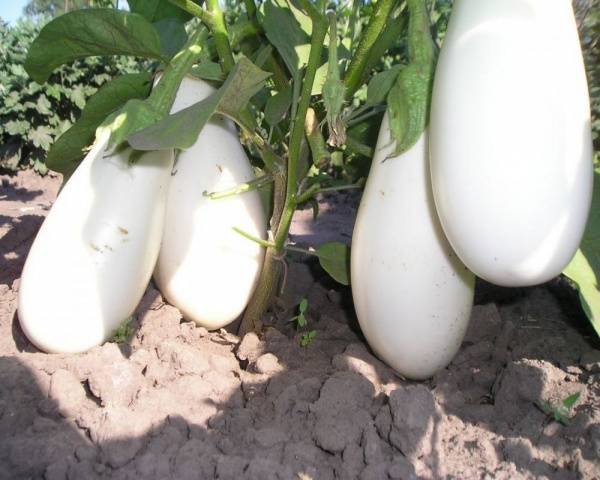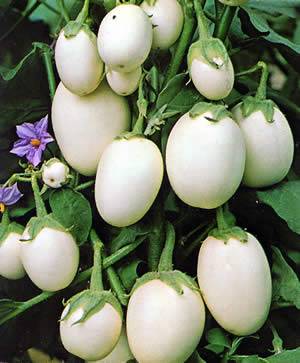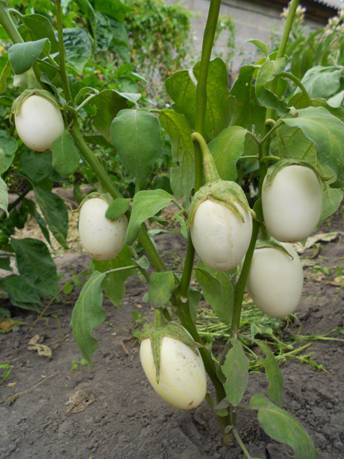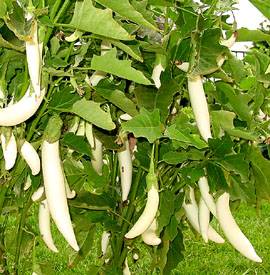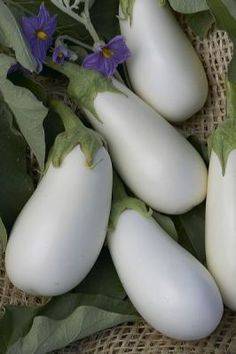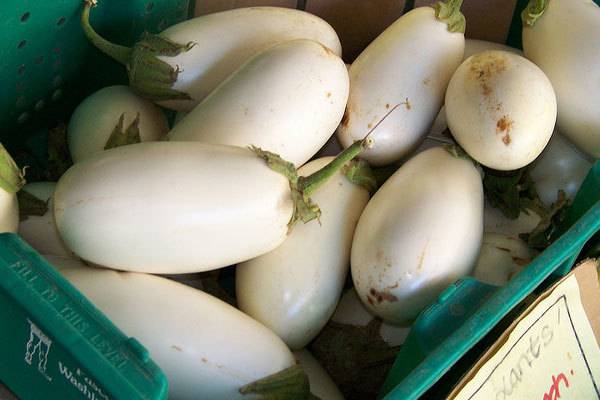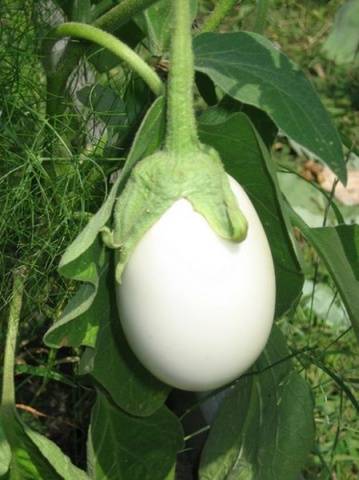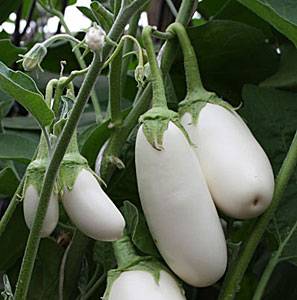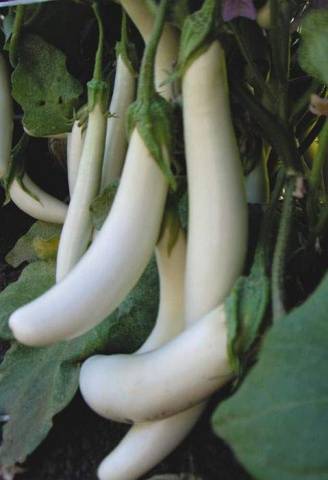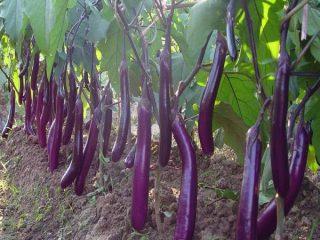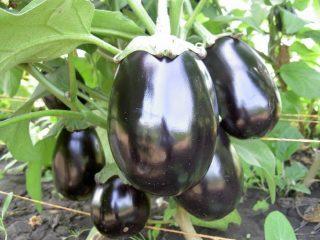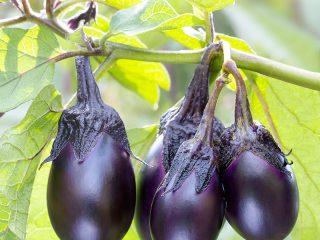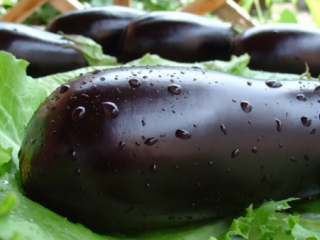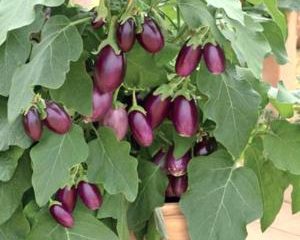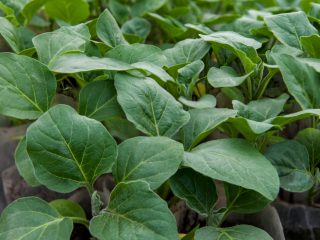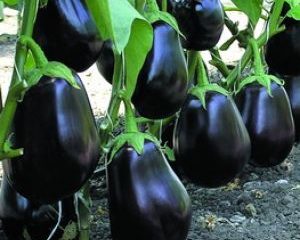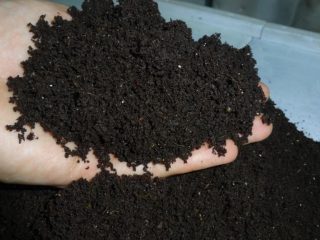Content
It so happens among common people that eggplants are called “blue”. First of all, this is due to the natural color of the vegetable, or more precisely, the berry. However, over time, this name has lost its relevance, because eggplants of various colors are known, including white.
A wide variety of white varieties includes plants differing in size, yield, and taste of the fruit. Among them, every gardener will be able to choose white eggplants for himself, in accordance with his agricultural and taste preferences.
Assortment of white varieties
It's no secret that ordinary purple eggplants are often bitter. This is due to the content of the substance solanine, which is considered a natural poison. In order to remove it, eggplants are subjected to special treatment and soaked before cooking. White varieties lack this enzyme and contain more potassium, calcium, and iron. That is why they are deservedly considered the most delicious and healthy. And previously they were even considered medicinal. Due to the lack of bitterness, most of them can be consumed fresh. The most famous white varieties are listed below:
Swan
One of the most popular varieties. Characterized by a ripening period of medium duration (100-110 days) and high yield (18 kg/m2).The plant is small, up to 70 cm high, adapted to open areas and greenhouse conditions.
Eggplant has not only a snow-white peel, but also pulp. At the same time, the vegetable has an excellent taste and is suitable for canning.
The dimensions of the fruit are small: length about 20 cm, weight no more than 250 g.
Bibo F1
When studying the ranking of the most popular eggplants, you will definitely come across this hybrid. Its homeland is Holland.
The unique, sweetish taste of the white pulp allows you to eat eggplant fresh. The fruits are of medium size: length about 18 cm, weight 300-400 g.
The bush is not tall (up to 85 cm) grows well and bears fruit in open ground, greenhouses, greenhouses. The period from planting seedlings to fruiting is 55 days. The yield of the variety is average – 5 kg/m2.
Ping Pong F1
By growing this hybrid, you can harvest more than 1.5 kg of small but very tasty white eggplants from one bush. At the same time, the plants are small, up to 70 cm high, which allows them to be planted in open ground or a greenhouse, 4 pcs per 1 m2 land.
One spherical fruit weighs no more than 70 g, its diameter is 5-6 cm.
In the active phase of fruiting, the bush is strewn with more than twenty eggplants. For them to ripen, it takes about 115 days from the moment the seed is sown. The taste of the variety is excellent.
Bambi F1
This hybrid is truly unique, and some even consider it decorative. It is adapted to the most modest climatic conditions and can even be grown on a balcony or windowsill. Its fruits are as small and neat as those of the Ping-Pong variety, weighing no more than 70 g. The fruits are snow-white not only on the outside, but also on the inside. The taste of eggplant is excellent.
The bush of this eggplant is small, up to 50 cm high, but the yield reaches 4 kg/m2.
Icicle
The variety received its unusual name due to its bizarre shape: a long fruit (up to 25-30 cm) with a small diameter weighs no more than 200 g. In the photo below you can visually assess the external qualities of this eggplant.
Icicle is grown in open ground. The bush of this variety is small (height up to 70 cm), so it can be planted 4 pieces per 1 m2 soil. The fruits ripen 110-116 days after sowing the seed. The yield of the variety reaches 8 kg/m2.
Snow
This early-ripening variety is a classic representative of white eggplants. It is grown both in open areas and under cover. The plant is compact, no more than a meter high. The slight spreading of the foliage allows you to plant 4-6 plants per 1 m2 soil.
White eggplants have a classic cylindrical shape, do not exceed 20 cm in length. The weight of the vegetable reaches 300-330 g. The fruits ripen in 100-106 days after sowing the seed. The yield of the variety reaches 6 kg/m2. You can see Snowy, or, more precisely, even snow-white eggplant in the photo:
Fluff
This variety is a representative of tall eggplants (plant height up to 180 cm), which require mandatory garter and sufficient lighting for the timely formation of greenery and ripening of fruits. The scheme for sowing seeds (seedlings) involves placing no more than 4 bushes per 1 m2 soil. Moreover, the variety is adapted to growth only in a greenhouse or greenhouse. In the presence of a favorable microclimate and compliance with the rules of care, the yield of the variety is 5-6 kg/m2.
White oval eggplants weigh no more than 200 g and ripen 105-110 days after the day of sowing the seed. The pulp of the vegetable has an excellent taste.
Pelican F1
This early ripening hybrid is milky white.The fruits are of an interesting saber shape (photo below), up to 20 cm long and weighing no more than 200 g. At the ripe stage, the fruits have tasty pulp, quite elastic, which allows vegetables to be stored for a long period of time without loss of external and taste qualities.
A relatively low-growing plant (up to 50 cm) can be grown in open and protected areas. One bush can bear fruit up to 2 kg of vegetables.
The fruits ripen 115-120 days after seed germination.
Ovoid
White eggplants are intended for growing in open areas. The name itself speaks of the correct shape of the fruit (photo below), the weight of which does not exceed 40 g. Despite the miniature size of the fruit, the yield of the variety is quite high - up to 6 kg/m2. The pulp of this vegetable is white, soft, and sweetish.
The bush of this variety is semi-spreading. At 1m2 It is recommended to plant no more than 4 plants in the soil.
Taste of mushrooms
The name of this variety already speaks about the unique taste of eggplant.
It is widely used in cooking. Analyzing the reviews of housewives, we can say that the product has proven itself particularly well in the preparation of caviar, which has a pronounced mushroom flavor.
Growing a rich harvest of these unique eggplants is not difficult: they are well adapted to various climatic conditions and are easy to care for. It is recommended to grow plants in open ground.
The fruits of the variety are cylindrical, white not only outside, but also inside. The average length of the vegetable is 20 cm, weight up to 200 g. It takes about 105 days for the fruit to ripen after sowing the seed. The yield of the variety reaches 7 kg/m2.
White Night
An ultra-early ripening variety, the fruits of which ripen within 75 days after sowing the seed.The plant is small, compact, no more than 70 cm high, but is capable of bearing fruit in a volume of up to 8 kg/m2. Excellent for planting in open and protected ground.
The taste of the white fruit is excellent: the peel is thin, the flesh is tender and sweetish. The length of the vegetable reaches 25 cm, weight no more than 300g.
Delicate F1
White eggplants of the Tender variety have an excellent taste.
Their flesh is white, dense and contains absolutely no bitterness. The vegetable is ideal for preparing seasonal dishes and canning. The size of the fruit is also optimal for all types of cooking, including barbecue: the length of the vegetable is up to 20 cm, the diameter is 5-6 cm (photo below).
The plant is adapted to grow in open areas and in greenhouses. The small height of the bush and relatively modest spreading allows you to plant 4-5 bushes per 1 m2 soil. Productivity of the variety is up to 5 kg/m2.
Conclusion
White eggplants, unfortunately, are not so common in our gardens. There is an opinion that they are particularly finicky to care for and do not produce as much yield as the usual purple ones. However, taking into account the reviews of experienced gardeners, we can say for sure that such an assessment is biased. By choosing good seeds and putting in some effort, white eggplants grow successfully and bear fruit no worse than varieties of other colors.
A comparative assessment of the taste and external qualities of eggplants of different colors is shown in the video:


